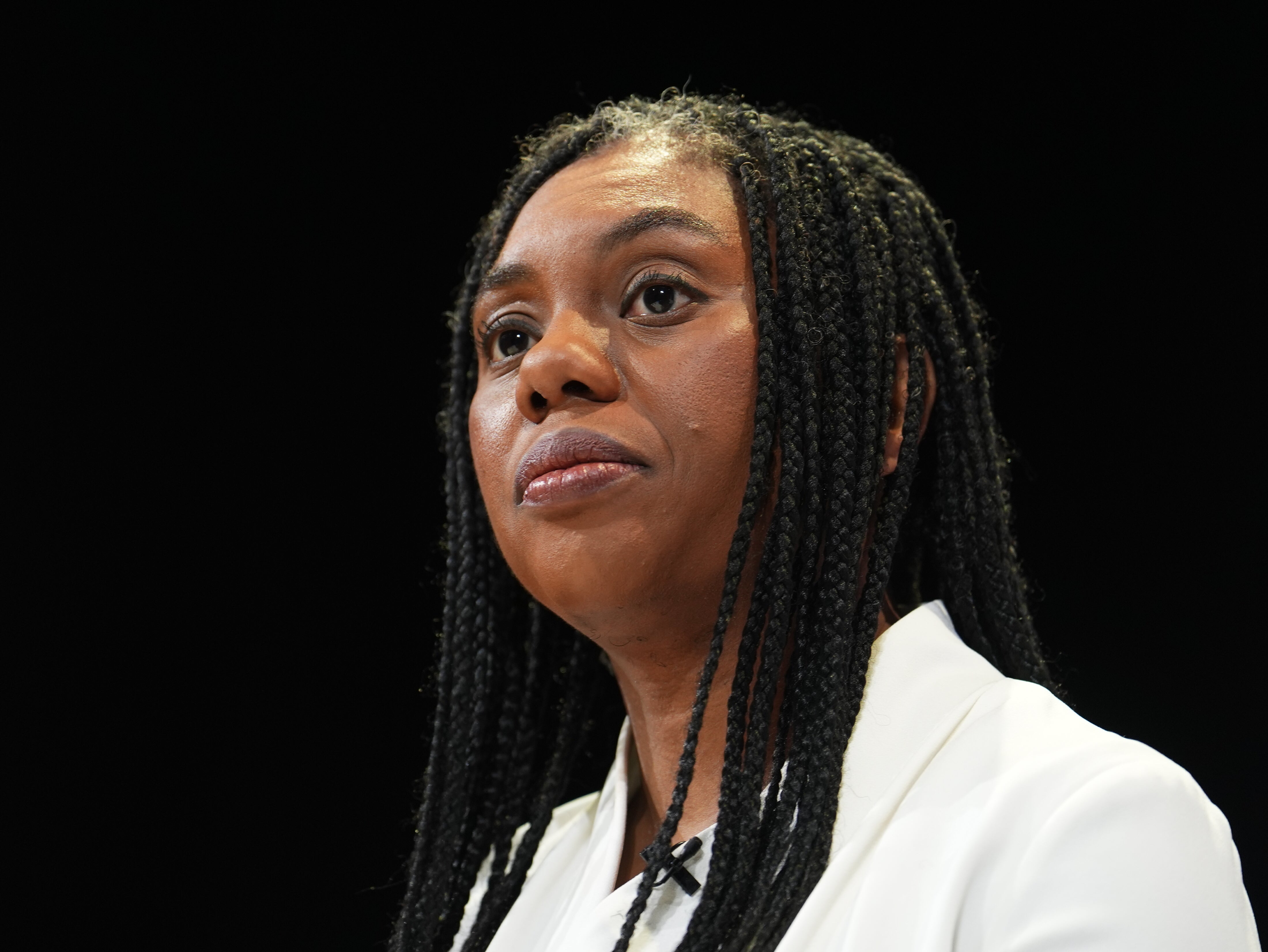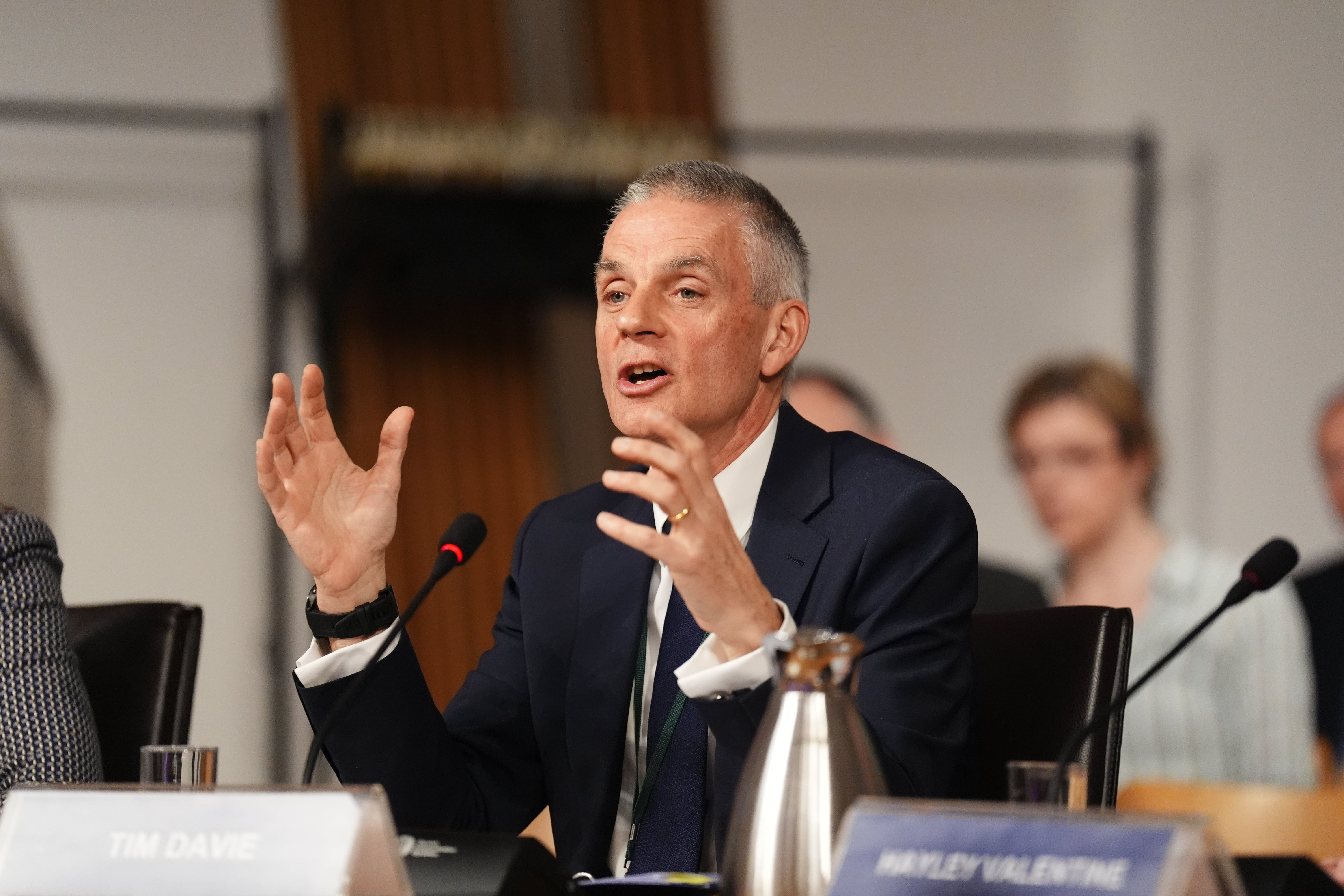Kemi Badenoch has threatened to withdraw support for the BBC licence fee in a lurch to the right as her party continues to leak support to Reform UK.
In a letter to director general Tim Davie she claimed that the final straw was the broadcaster airing a documentary featuring the son of man who worked as a deputy agriculture minister for Hamas.
Accusing the broadcaster of bias, she demanded a full investigation into the BBC2 programme Gaza: How to Survive a Warzone, questioning whether it may have led to cash being given to Hamas.
The BBC has taken the show off iPlayer amid “continuing questions raised” that have led to a talks with the production company.
In her letter to Mr Davie, Ms Badenoch wrote: “The BBC must recognise how serious these allegations are for its public standing.
“The BBC’s Middle East coverage is widely regarded as unreliable. The Conservative Party has supported the BBC in government, including through the current charter, which will end in 2027.
“I cannot see how my party could support the continuation of the current licence fee-based system without serious action by the BBC management to prove the organisation is committed to true impartiality.”
Her comments are a step up from Boris Johnson in 2019, who said the party is “looking at” abolishing the TV licence, calling into question its status as a publicly funded broadcaster.

Many MPs in the Tory party have also voiced their opposition to the fee on ideological grounds, arguing that television should be privately run and not in the hands of the public.
Ms Badenoch’s move signals yet another lurch to the right from the Tory leader, who is attempting to fend off the threat from Reform UK amid struggling ratings in the polls.
Last week, culture secretary Lisa Nandy said she would discuss the matter with Mr Davie, “particularly around the way in which they sourced the people who were featured in the programme”.
In a clarification issued by the broadcaster, a spokesperson said: “We followed all of our usual compliance procedures in the making of this film, but we had not been informed of this information by the independent producers when we complied and then broadcast the finished film.”

But Mrs Badenoch suggested the family link could have led to “the possibility of payment to Hamas officials”.
She also claimed claimed executives at the corporation had initially been defensive amid criticism of the documentary.
“The BBC also suggested that ‘usual compliance procedures’ had been followed. But does filming inside Gaza not require something far beyond usual checks?”, she added.
“This is why I support calls for an independent inquiry into the documentary’s commissioning and production, which should be concluded and published in a timely way.
“Such an investigation must consider allegations of potential collusion with Hamas, and the possibility of payment to Hamas officials.”
The probe must go much further, she added, and address “repeated and serious allegations of systemic and institutional bias against Israel in the BBC’s coverage of the war”.
Mrs Badenoch’s renewed fight with the BBC comes as part of a wider attempt to stave off the threat from Reform UK, which has branded itself the “leading voice of opposition” to the broadcaster.
The BBC licence fee, which the government has committed to increasing in line with inflation each year until 2027, is to rise to £174.50 in April.
It has not yet been decided what will happen to the BBC’s funding model after 2027, but there are several options on the table including means-testing TV licences, with richer households paying more.
Last year, Mr Davie told a Royal Television Society event that the broadcaster was planning how it would reform the system after its current charter agreement.
A statement from the BBC said: “Gaza: How to Survive a Warzone features important stories we think should be told – those of the experiences of children in Gaza.
“There have been continuing questions raised about the programme and in the light of these, we are conducting further due diligence with the production company.
“The programme will not be available on iPlayer while this is taking place.”
The BBC has been contacted for comment.


